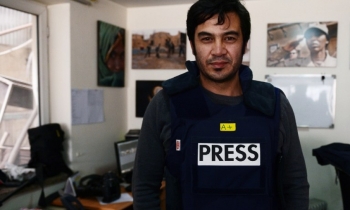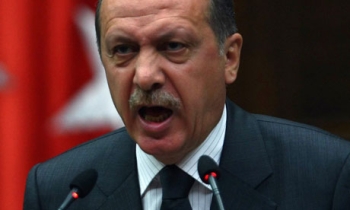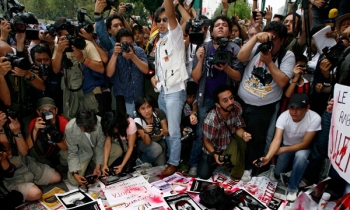Following the brutal murder on Sunday of radio journalist Bruno Koko Chirambiza in eastern Democratic Republic of Congo—the third journalist to be slain in the restive region since 2007—the Committee to Protect Journalists (CPJ) has called on Congolese authorities to end the alarming pattern of impunity in journalist murders.
Eight unidentified assailants in civilian clothing attacked Chirambiza, 24, a presenter for private Star Radio in the capital of South Kivu province, Bukavu, as he was walking home from a wedding with a friend early Sunday morning, according to the press freedom group Journaliste en Danger and local journalists. The assailants stabbed Chirambiza in the chest but left his personal belongs intact, including a mobile phone and 5,600 Congolese francs (US$7), according to Radio Star Program Director Jilly Bianga. He died around 1 a.m. on Sunday at a local hospital.
Chirambiza did not report any threats, and he did not cover any sensitive topics that might draw harassment for his journalism, according to Bianga. CPJ is investigating the circumstances of the case to determine whether the killing was work-related.
"Bukavu has become one of the most dangerous cities for journalists in Africa. Congolese authorities have failed to conduct thorough investigations into the murders of media personnel, and that has emboldened the killers of journalists," CPJ Africa Programme Coordinator Tom Rhodes. "We offer our sincere condolences to the family, friends, and colleagues of Bruno Koko Chirambiza, and we appeal to Congolese authorities to investigate this murder."
“We are deeply saddened by this new tragedy, which we fear could terrorise journalists in Bukavu and discourage them from working,” Reporters Sans Frontières (RSF) said. “The impunity enjoyed by those who murder journalists in Democratic Republic of Congo and especially in Kivu is outrageous and is responsible for this latest recurrence. Those responsible must be found and brought to justice.”
“We strongly condemn the murder of our colleague and demand that these attacks against the journalists in the East of the country be severely punished ,” said Gabriel Baglo, Director of the International Federation of Journalists (IFJ) Africa Office. “Violence against journalists in the East of DRC constitutes an attempt to intimidate and silence the press in this part of the country,” he added.
Calling the killing a "heinous assassination," Congolese Communications Minister Lambert Mende granted an interview to Radio France Internationale—a station Mende banned across DRC last month. "We have immediately ordered police authorities via the Interior Ministry, and the state prosecutor via the Justice Ministry to quickly launch investigations," he said from Kinshasa.
Chirambiza joined Radio Star in June 2008. In addition to reporting from the field and presenting newscasts in the local Kiswahili language, Chirambiza presented four entertainment programs covering music, fashion, and youth culture, according to Bianga. He praised Chirambiza's versatility, saying the station "will greatly miss" the slain journalist.
Two other journalists have been murdered in unclear circumstances in Bukavu in the last 26 months: Serge Maheshe and Didace Namujimbo, both of UN-sponsored network Radio Okapi. Chirambiza was the sixth Congolese journalist murdered since 2005, according to CPJ research.
In a report last March entitled “Bukavu, murder city,” RSF urged the Congolese government to set up a special judicial commission to investigate the murders of journalists and human rights activists in Bukavu. The report referred to the city as a “dangerous and unstable place where nothing goes to plan,” and added that, “the sprawling Kadutu slum is a breeding ground for hired killers that is difficult to control.”









